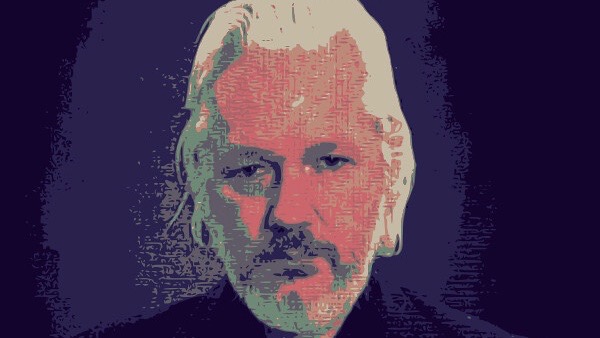In a disastrous move for press freedom, UK Home Secretary Priti Patel has sanctioned the extradition of WikiLeaks founder Julian Assange to the US. The decision was confirmed by the Home Office on Friday, June 17.
A statement posted on the WikiLeaks Twitter account condemned the outcome as a “dark day for press freedom and for British democracy,” adding that “It was in Priti Patel’s power to do the right thing. Instead she will forever be remembered as an accomplice of the United States in its agenda to turn investigative journalism into a criminal enterprise.”
BREAKING: UK Home Secretary approves extradition of WikiLeaks publisher Julian Assange to the US where he would face a 175 year sentence – A dark day for Press freedom and for British democracy
The decision will be appealedhttps://t.co/m1bX8STSr8 pic.twitter.com/5nWlxnWqO7— WikiLeaks (@wikileaks) June 17, 2022
Assange’s legal team will have 14 days to appeal the decision, an action they have confirmed they will pursue: “Today is not the end of the fight. It is only the beginning of a new legal battle. We will appeal through the legal system, the next appeal will be before the High Court.”
Assange is being held at the high security prison in Belmarsh after being forcibly removed from the Ecuadorian embassy in London in 2019. If he is extradited to the US, he will face trial on 18 charges, including 17 counts under the Espionage Act. These are related to the hundreds of thousands of classified documents and diplomatic cables published by Wikileaks exposing the horrific abuses committed by the US military during the invasions of Afghanistan and Iraq. If Assange is convicted, he could face a combined prison sentence of 175 years.
Early last year, a District Court had blocked Assange’s extradition, declaring it “oppressive” on account of his mental health and high risk of suicide. However, this decision was thrown out by the High Court in December following “assurances” given by US prosecutors regarding the conditions of Assange’s imprisonment.
In January, Assange was granted permission to appeal the decision in the Supreme Court. However, the Supreme Court declined to hear the application in March. The following month, the extradition order was formally approved by Chief Magistrate Paul Goldspring of the Westminster Magistrates Court, and subsequently forwarded to Secretary Patel for approval.
A Home Office spokesperson stated on Friday that “In this case, the UK courts have not found that it would be oppressive, unjust, or an abuse of process to extradite Mr. Assange. Nor have they found that extradition would be incompatible with his human rights, including his right to fair trial and to freedom of expression, and that whilst in the US he will be treated appropriately, including in relation to his health.”
Assange’s defense team has dismissed these supposed assurances, highlighting their conditional and reversible nature. They will now have the opportunity to challenge the extradition based on other points of law which have not been subject to the appeals process. These could potentially include grounds such as the right to freedom of expression and if the extradition was politically motivated.
The proceedings have been marred by shocking revelations, including a CIA plot to assassinate Assange, and the use of falsified testimonies and illegal snooping by the US prosecution to build its case against him.
The Wikileaks statement says, “Make no mistake, this has always been a political case. Julian published evidence that the country [the US] trying to extradite him committed war crimes and covered them up…Their revenge is to try to disappear him into the darkest recesses of their prison system for the rest of his life to deter others from holding governments to account.”
“We will not let that happen. Julian’s freedom is coupled to all our freedoms. We will fight to return Julian to his family and to regain freedom of expression for us all,” the statement reads.
The Home Secretary’s decision has drawn global outrage, with the International Federation of Journalists calling it “vindictive and a real blow to media freedom.”
#FreeAssangeNOW : The UK decision to allow the extradition of Assange is vindictive and a real blow to media freedom. He has simply exposed issues that were in the public interest and Patel's failure to acknowledge this is shameful and sets a terrible precedent pic.twitter.com/JBBeBD5jLv
— IFJ (@IFJGlobal) June 17, 2022
The Home Secretary’s decision to allow Julian Assange’s extradition to the US is utterly wrong and marks a very dark day for press freedom and the justice system.
We will continue the fight to free Julian Assange. https://t.co/q725hYeF9Y
— Jeremy Corbyn (@jeremycorbyn) June 17, 2022
No words can express the significance of the precedent that was set today by UK Home Secretary @pritipatel in approving Julian Assange’s extradition to the US.
We are outraged but not defeated. We will not give up until Assange is set free.#FreeAssange https://t.co/NsKjKiACqs
— DiEM25 (@DiEM_25) June 17, 2022
Amnesty International has called on the UK government to refrain from extradition and the US to drop the charges so that Assange is freed, arguing that the move puts him at “great risk and sends a chilling message to journalists the world over.”
“Allowing Julian Assange to be extradited to the US would put him at great risk and sends a chilling message to journalists the world over.” @AgnesCallamard calls for the US to drop the charges, and for #Assange to be freed pic.twitter.com/LBDbVUBBur
— Amnesty EU (@AmnestyEU) June 17, 2022





